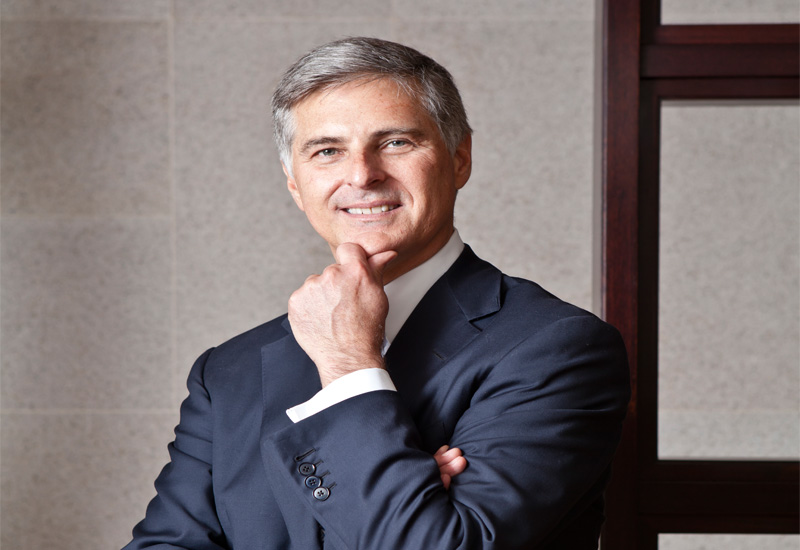“Those underlying principles that are driving our growth, better serving customers, creating opportunities for owners, creating more opportunities for our team members, they’re all exactly the same, there really is no difference,” comments Nassetta, adding that the goal now is “to accelerate those”.
Looking at the Middle East and Africa specifically, there are currently 66 hotels operating with 20,145 rooms and 67 pipeline properties with 20,306 rooms.
“In the next three to four years our plan is to double in the region, in the UAE, we’d obviously like to see something similar. I think we have 14 hotels in UAE and we’ve got seven in the pipeline but we’re working diligently to continue to enhance that pipeline so in the next three to five years, we certainly want to double.”

| Advertisement |
Part of growing the pipeline will include bringing new brands to the region, most likely Hampton by Hilton followed by Embassy Suites, reveals Nassetta.
“Star systems don’t mean anything anymore but to use the vernacular, if Hilton Garden Inn is four-star then Hampton is in this part of the world three-star, it’s an amazing product but it’s a little bit lower price point and I think as the lodging market matures in the Middle East it will allow us to continue to serve more customers.”
Currently, Hampton has 1937 hotels open in 15 countries and more than 350 hotels in the pipeline, with the 2000th property expected to open this year. All-suites brand Embassy Suites is smaller, with 215 hotels open in five countries and 25 hotels in the pipeline.
“[Embassy Suites] has been primarily a North American experience but increasingly my sense is customers want that product. The opportunity to do Embassy is much more limited because there are only so many of those that you do in terms of demand for an all-suites product but I do think the demand will be there.
In terms of a Hampton and Garden Inn, I think there’s a much bigger opportunity in terms of number of units,” says Nassetta, referring to a recent partnership with Wasl Hospitality to bring mid-priced hotel brand Hilton Garden Inn to the UAE for the first time, following a signing agreement for two new hotels in Dubai.
Nassetta reveals the industry can expect the announcement of “at least one new brand in the not too distant future”, expected to be in the lifestyle sector, after the demise of Hilton Worldwide’s Denizen brand back in 2010 following an industrial espionage suit by Starwood.
He’s unwilling to be drawn on this, merely saying “we are working on some ideas”, but expectation is that a boutique brand will be unveiled soon.
Nassetta also promises more innovative integration of technology to give “customers across the whole system more choice and control in how they interact with us”. He acknowledges that hotels can’t possibly get ahead of the technological innovators, but says it is time to put what already exists to better use.
“I think like anything in business you keep steady hands on the wheel, you don’t take sharp turns left and right at every exit, there’s so much happening technologically you can’t keep up with it and I think if you try to you’re going to veer off the road and make mistakes, so I think [we must] keep it simple.
In my mind what’s most important to customers is making their life easy, giving them more control,” he comments. “With a hotel experience think of all the things that have been the same since you were a kid, they’ve been the same for 100 years, why do they need to be that way, why can’t they just be easier, why can’t you be in control of it and why can’t technology enable that?
“The short answer is it can, it exists. Somebody just has to actually do it and do it at scale, so we’re going to do that, we’re certainly going to try,” he claims, hinting that a technological revolution could be the next change at Hilton Worldwide.









 Search our database of more than 2,700 industry companies
Search our database of more than 2,700 industry companies









